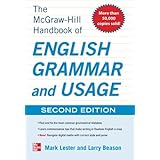clitic : Related Words Words similar in meaning to clitic
- proclitic«
- mesoclitic«
- endoclitic«
- enclitic«
- preclitic«
- clitics«
- postclitic«
- affix«
- simple clitics«
- verb«
- morpheme«
- word«
- special clitics«
- proclisis«
- host«
- nota augens«
- phrase«
- auxiliary verb«
- mesoclisis«
- meaning«
- endoclitics«
- core example«
- endoclisis«
- morphological affix«
- enclisis«
- syntactic phrase«
- contraction«
- cliticization«
- clause«
- clitichood«
- emphasis«
- pronominal clitics«
- romance language«
- indo«
- pronoun«
- preverb«
- paula«
- wackernagel«
- european language«
- enclitics«
- category«
- sentence«
- noun«
- element«
- separate word«
- lexical item«
- property«
- sanskrit«
- speech«
- definite article«
- ei«
- apostrophe«
- hyphen«
- dar«
- question«
- form«
- position«
- term«
- ő sem jön«
- ánthrōpoí«
- álfrinn«
- verbal clitic adverbial adjunct«
- unstressed personal pronoun«
- tréit«
- theoí«
- special clitic«
- short particle«
- senate people«
- semantic idiosyncrasy«
- se mi mu«
- sat ijōs«
- sandhi change namaḥ«
- s'est réveillé«
- romance pronominal clitics«
- quis enim potest negare«
- prosodic independence«
- prosodic autonomy«
- proceeds indefinite noun«
- postlexical clitics«
- postlexical clitic«
- portuguese synthetic future tense«
- phonological makeup«
- person singular neuter pronoun«
- person masculine singular pronoun«
- object personal pronoun form«
- nepodařilo«
- nem tudja még«
- naro gajaśca«
- multiple clitics«
- morphophonological idiosyncrasy«
- morpheme ’s allowable behavior«
- lo-á«
- linguist arnold zwicky«
- judith klavans«
- irregular meaning«
- independent pronoun hinn«
- independent clitic«
- greek κλιτικός klitikos«
- gjǫfin«
- german pronoun jener«
- genitival inflection«
- epigram lxiv«
- english enclitics«
- english clitic ’s«
- endoclitic split«
- enclitic -inn«
- eles dar«
- ele estava era gordo«
- dá-lo«
- double declension«
- deit'a't vondoag«
- conditional mood particle«
- clitic/affix distinction«
- clitic syntactically function«
- clitic attache«
- cię«
- autonomous lexical item«
- atamos«
- accentual unit«
- -śmy«
- -itt«
- þus silbin«
- typical affix«
- sēƕi«
- spevak«
- se-á«
- phrasal affix«
- other germanic languages«
- lo-ão«
- lexicalist hypothesis«
- lexical integrity hypothesis«
- lexical argument«
- genitive postposition«
- ela levá-lo«
- clitic →«
- clitic climbing«
- ia«
- verb haver«
- sentence clitics«
- object clitics«
- morphologization«
- arbitrary gap«
- -ście«
- -nga«
- test«
- short preposition«
- english plural -s«
- colloquial portuguese«
- person singular conjugation«
- nominal particle«
- namaḥ«
- grammatical status«
- base morpheme«
- suffix«
- syntactic characteristic«
- linguistic test«
- future suffix«
- verb ser«
- dámelo«
- conquistar«
- clause level«
- phrase level«
- morphophonological rule«
- proto«
- jacob wackernagel«
- autem«
- þan«
- heterogeneous class«
- enim«
- particle«
- weak pronoun«
- senatus populusque romanus«
- clitic form«
- topic marker«
- tmesis«
- direct object pronoun«
- udi language«
- modern faroese«
- elephant«
- verbal particle«
- indirect object pronoun«
- geoffrey pullum«
- -ca«
- object suffix«
- syntactic role«
- germanic languages«
- possessive marker«
- negative marker«
- many indo«
- phrasal«
- observable property«
- degema«
- free morpheme«
- slavic languages«
- prosody«
- simple meaning«
- neun«
- empirical foundation«
- independent word«
- european languages«
- english«
- -te«
- stress«
- possessive determiner«
- indirect question«
- adpositions«
- pullum«
- distinction«
- orthographic convention«
- grammaticalization«
- european«
- word order«
- namas«
- person plural pronoun«
- criterion«
- affixation«
- plautdietsch«
- grammatical particle«
- hada«
- alternative analysis«
- namaste«
- function word«
- ele«
- entire sentence«
- person singular pronoun«
- direct question«
- -in«
- neuter noun«
- spanish«
- complete isolation«
- -u«
- vero«
- other languages«
- ganda«
- couldn’t«
- reflexive pronoun«
- grammatical category«
- sandhi«
- variant«
- basic definition«
- logical argument«
- characteristic«
- adjectival«
- single word«
- infix«
- narrower sense«
- subjunctive«
- prepositional phrase«
- ze«
- finite form«
- main verb«
- t'aime«
- free form«
- historical process«
- -e«
- thyself«
- sallust«
- determiner«
- person pronoun«
- strong form«
- intermediate stage«
- context«
- copula«
- gran colombia«
- comparison«
- abbreviated form«
- infinitive«
- evolutionary process«
- broad term«
- similar meaning«
- common approach«
- object«
- special character«
- sense«
- respect«
- combination«
- tense«
- adverb«
- devanagari«
- technical term«
- pashto«
- intonation«
- punctuation«
- ser«
- god«
- orthography«
- ale«
- he«
- language«
- lack«
- material«
- cognate«
- tu«
- old norse«
- merging«
- ending«
- martial«
- confines«
- Saxon genitive«



